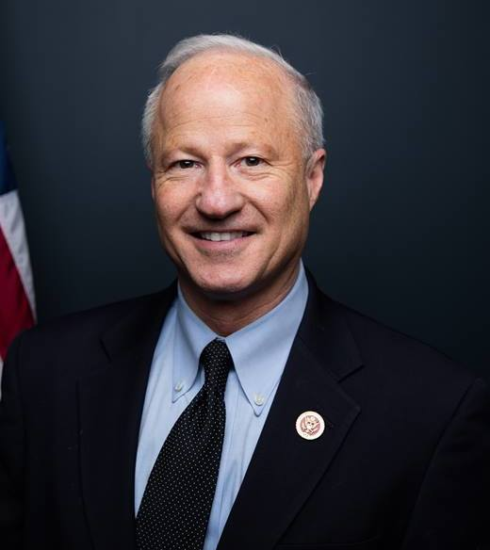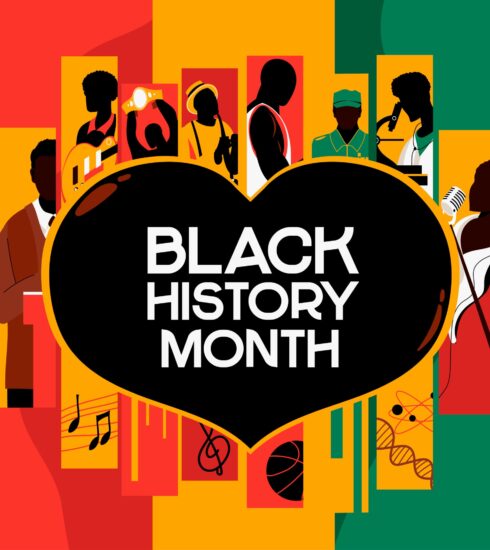Black History Month provides all Americans with an opportunity to honor, recognize and celebrate hundreds of years of Black history and heritage, as well as their achievements and contributions to community, country and word at large.
Since 1976, every U.S. President has officially designated the month of February as Black History Month. A growing number of other countries are also now devoting a month to honoring and celebrating Black history.
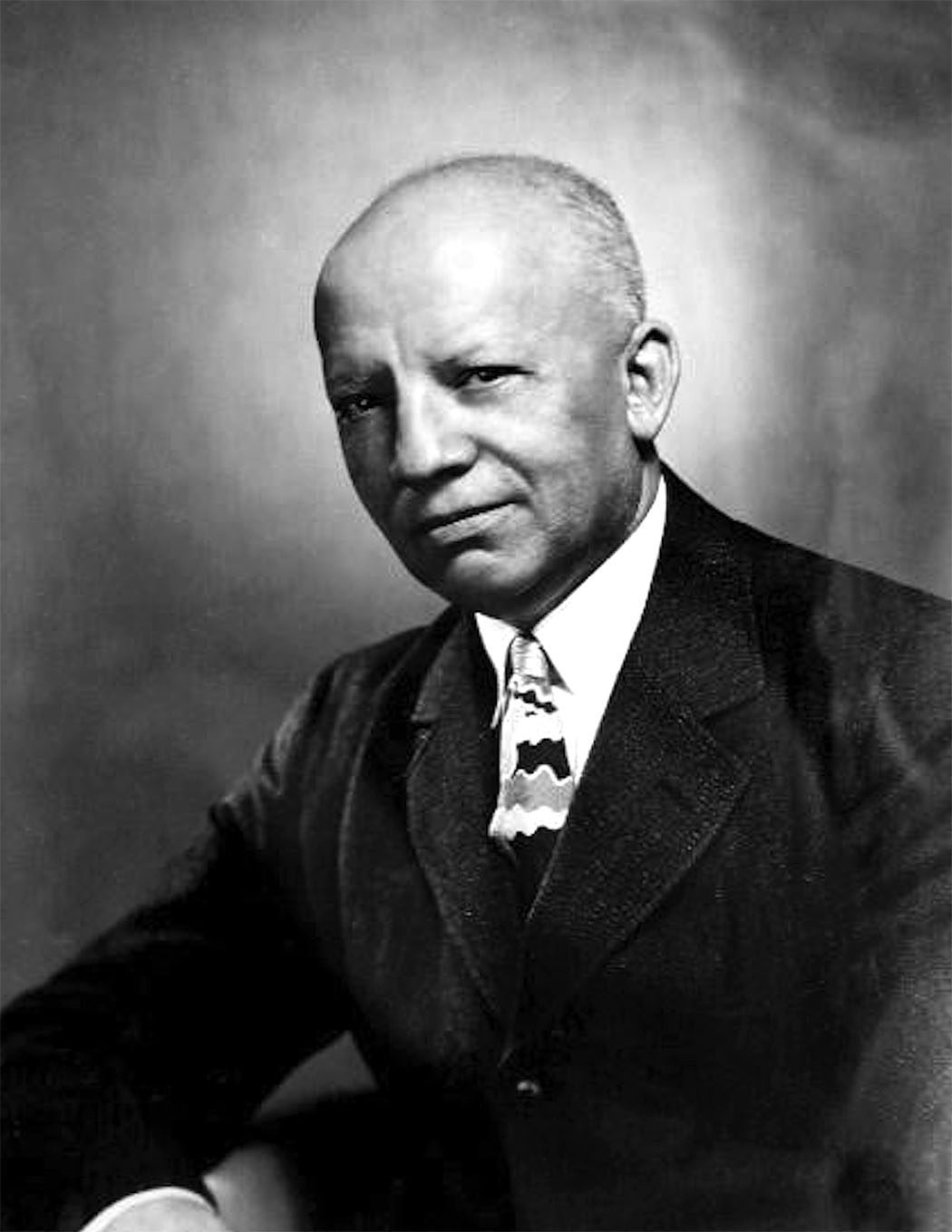
The celebration of Black History Month began as “Negro History Week,” which was created in 1926 by Carter G. Woodson, a noted African American historian, scholar, educator and publisher. It became a month-long celebration in 1976. Credit:History.com
The theme for Black History Month 2024 is “African Americans and the Arts,” which seeks to raise awareness of the influence that African Americans have had in visual and performing arts, literature, fashion, folklore, language, film, music, architecture, culinary and other forms of cultural expression.
In this piece we take a look at the man who was at the genesis of Black History Month, Carter Godwin Woodson.
Dr. Carter Godwin Woodson who is often referred to as the “father of Black history,” was born in 1875 in New Canton, Virginia. After working as a sharecropper and miner to support his parents and siblings, he moved on to receive bachelor’s and master’s degrees from the University of Chicago. He obtained a Ph.D. in history from Harvard University in 1912, becoming only the second Black American to do so after W.E.B. DuBois, also from Harvard University in 1895.
Woodson “witnessed how black people were underrepresented in the books and conversations that shaped the study of American history.” James Baldwin, the renowned Black American author and journalist, captured the frustration that must have led to Woodson’s crusade to instigate research and studies involving Black educators and scholars to unearth and bring to the fore the immense contributions of Black Americans to American experience, history, and nation building. Writing about the shortcomings of his education in 1964, Baldwin narrated his experience at school thus: “I began to be bugged by the teaching of American history because it seemed that that history had been taught without cognizance of my presence.”

While Rosa Parks is credited with helping to spark the civil rights movement when she refused to give up her public bus seat to a white man in Montgomery, Alabama in 1955–inspiring the Montgomery Bus Boycott—the lesser-known Claudette Colvin was arrested nine months prior for not giving up her bus seat to white passengers. Credit: History.com
In 1915, 50 years after the 13th Amendment abolished slavery, Woodson and the Rev. Jesse E. Moorland — a well-read Black American clergy and leader — co-founded the Association for the Study of Negro Life and History (ASNLH), later renamed the Association for the Study of African American Life and History (ASALH). The association’s purpose was to promote studying black history as a discipline and celebrate the accomplishments of Black Americans and other peoples of African descent. Moorland was a member of Phi Alpha Fraternity, an organization that vigorously promoted the study of Black American History, and was publishing a regular column in the Fraternity’s official Sphinx Magazine prior to the inception of Negro History Week in 1926.
In 1916, Woodson reportedly singlehandedly launched the Journal of Negro History, where he and other researchers brought attention to the achievements of Black Americans. For additional message outlets, Woodson turned to his fraternity, Omega Psi Phi, “which created Negro History and Literature Week in 1924.” However, it was during Woodson’s tenure as the President of ASNLH that he gave a press release in February 1926 announcing the inception of the first Negro History Week, intentionally designating the second week of February for that purpose.
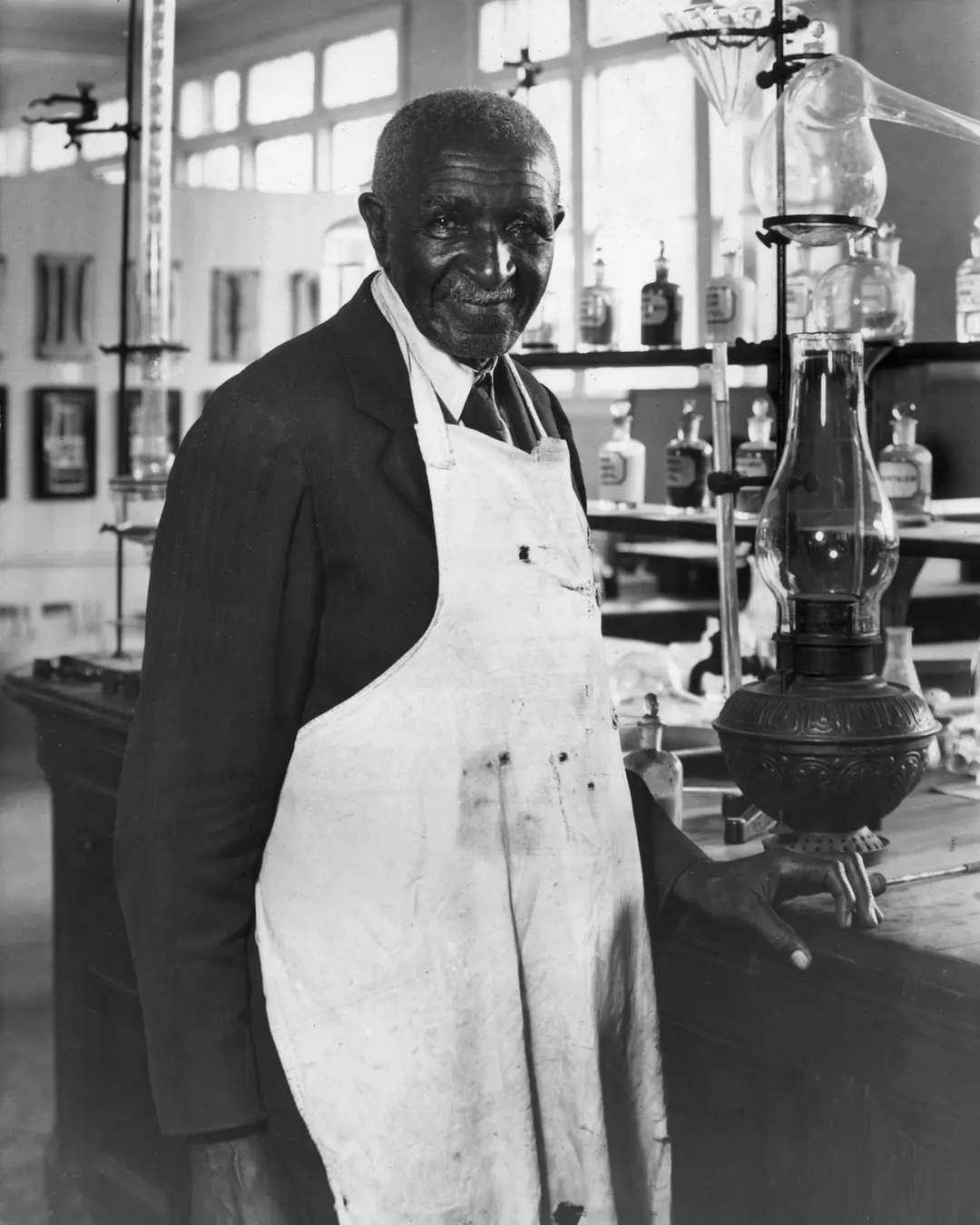
George Washington Carver developed 300 derivative products from peanuts among them cheese, milk, coffee, flour, ink, dyes, plastics, wood stains, soap, linoleum, medicinal oils and cosmetics. Credit: History.com
The second week in February contained the birthdays of both President Abraham Lincoln and Frederick Douglass, “two prominent men whose historic achievements African Americans already celebrated. President Lincoln’s birthday was Feb. 12, and Douglass, born into slavery, did not know his actual birthday but had celebrated the occasion on Feb. 14: Valentine’s Day. (February was Dr. Woodson’s choice and not anyone else picking the shortest month of the year out of prejudice). Woodson envisioned extending the timeframe for the study of Black history beyond one week, but he died suddenly from a heart attack in 1950, ten years after Moorland’s death in 1940, also of heart attack. That milestone shift to a month-long Black History Month came to fruition in 1976 when ASALH made the official proclamation.
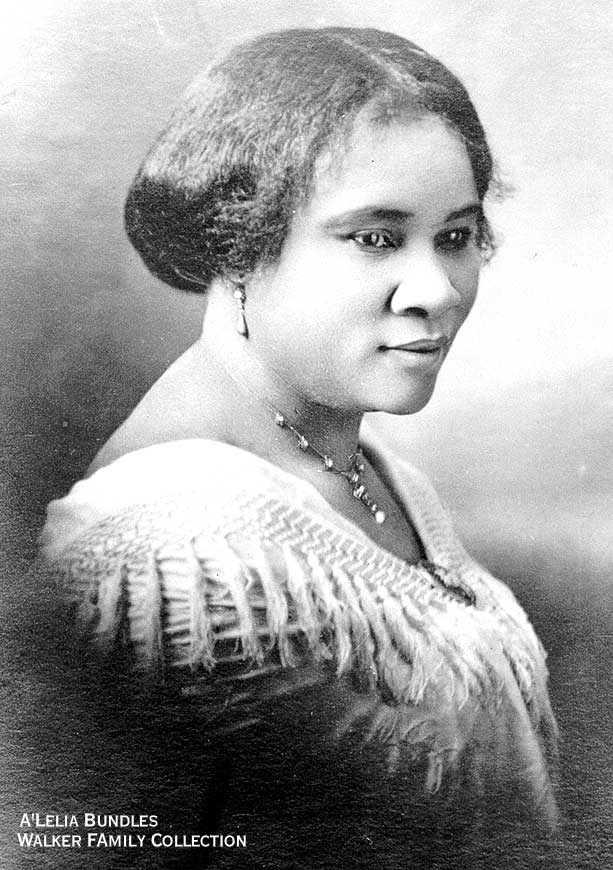
Madam C.J. Walker was born on a cotton plantation in Louisiana and became wealthy after inventing a line of African American hair care products. She established Madame C.J. Walker Laboratories and was also known for her philanthropy. Credit: History.com
Since this change, every United States President has issued a proclamation honoring the spirit of Black History Month, including the first African American 44th President of the United States, Barack Obama. President Gerald Ford put the presidential seal of approval of the change with a proclamation the same year, remarking that the celebration enabled people to “seize the opportunity to honor the too-often neglected accomplishments of Black Americans in every area of endeavour throughout our history.”
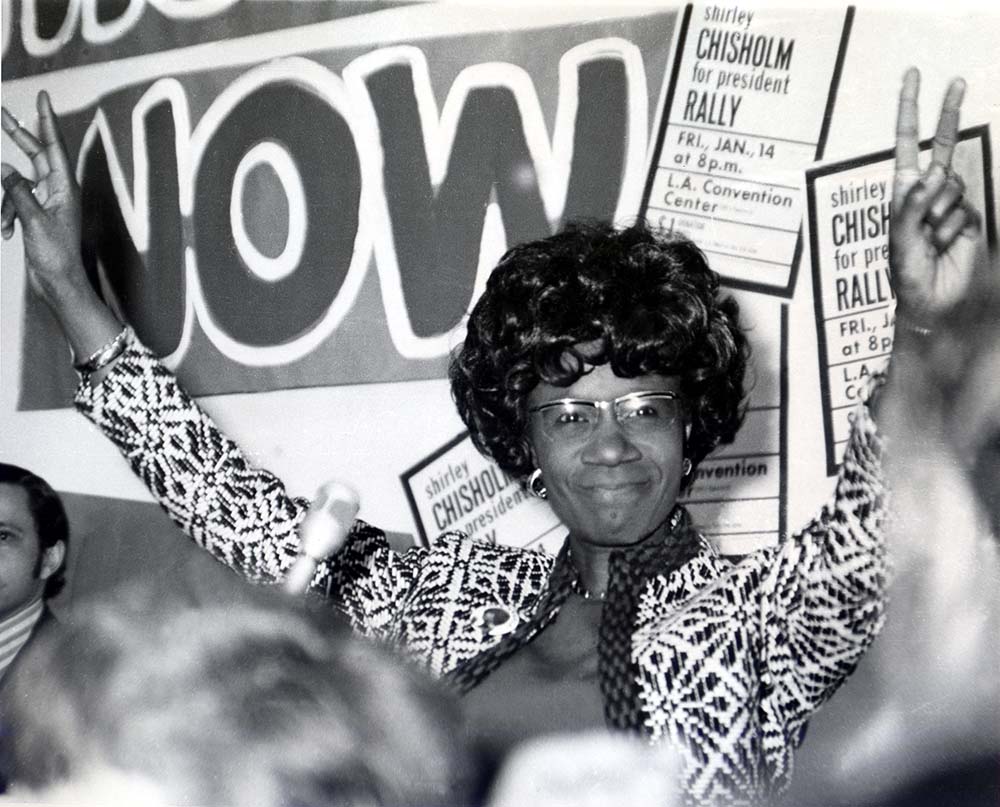
Shirley Chisholm was the first African American woman elected to the House of Representatives. She was elected in 1968 and represented the state of New York. She broke ground again four years later in 1972 when she was the first major party African American candidate and the first female candidate for president of the United States. Credit: History.com
In his first Black History Month proclamation, President Ronald Reagan remarked that “understanding the history of Black Americans is a key to understanding the strength of our nation.” In proclaiming February 2016 as National African American History Month in the 40th year of its inception, President Obama enjoined us all to “reflect on the sacrifices and contributions made by generations of African Americans, and … resolve to continue our march toward a day when every person knows the unalienable rights to life, liberty, and the pursuit of happiness.”
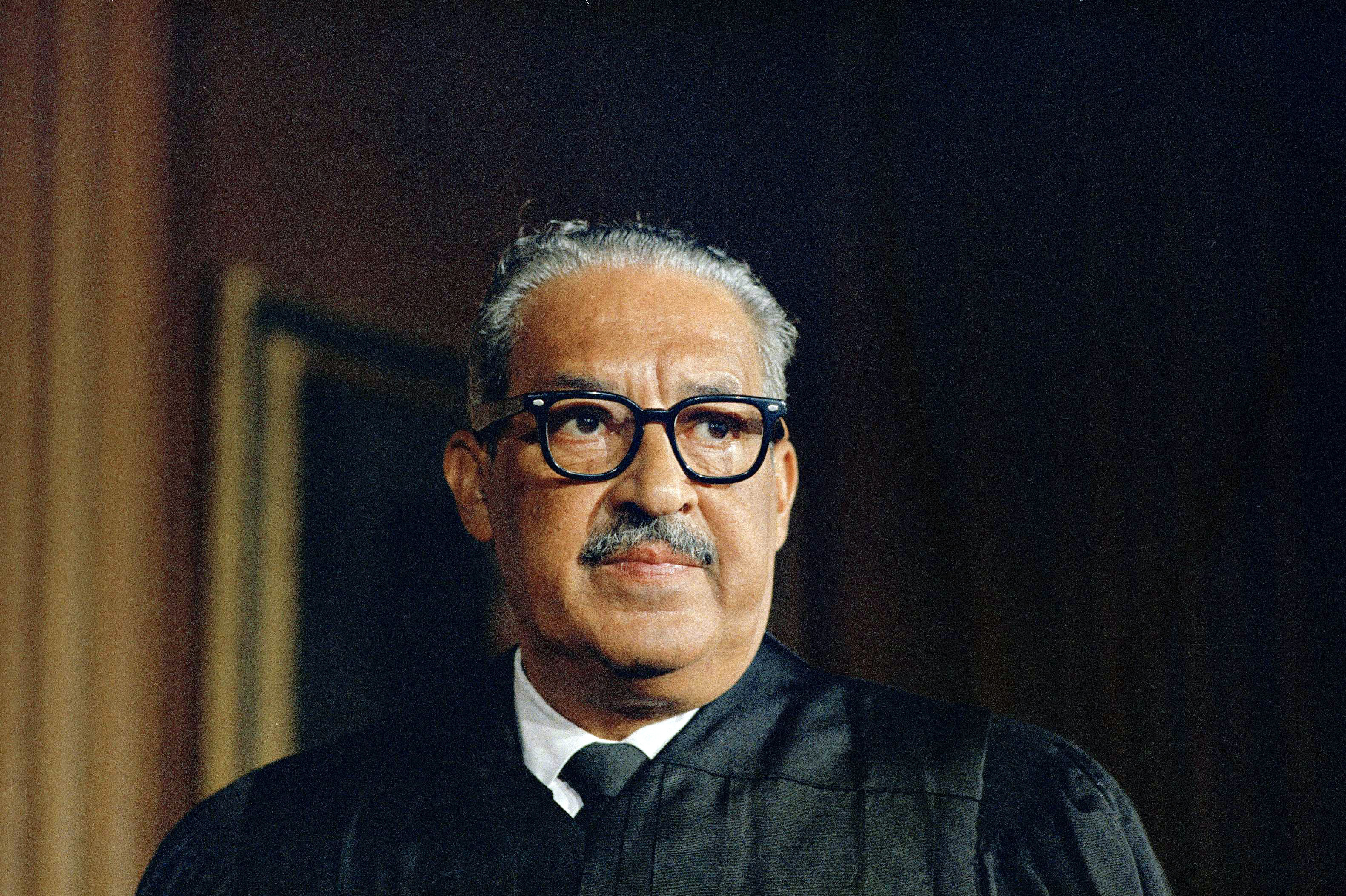
Thurgood Marshall was the first African American ever appointed to the U.S. Supreme Court, serving from 1967 to 1991. Credit: AP Photo
Proclaiming February 2022 National Black History Month, President Joseph Biden Jr. recalled American experience as reason “why it is essential that we take time to celebrate the immeasurable contributions of Black Americans, honor the legacies and achievements of generations past, reckon with the centuries of injustice, and confirm those injustices that still fester today.”

Robert Johnson became the first African American billionaire when he sold the cable station he founded, Black Entertainment Television (BET) in 2001. Credit: History.com

In 2008, Barack Obama became the first Black president of the United States. Credit: History.com
Today, Black History Month is a time to honor the contributions and legacy of African Americans across U.S. history and society—from activists and civil rights pioneers such as Harriet Tubman, Sojourner Truth, Marcus Garvey, Martin Luther King Jr., Malcolm X and Rosa Parks to leaders in industry, politics, science, culture and more.




